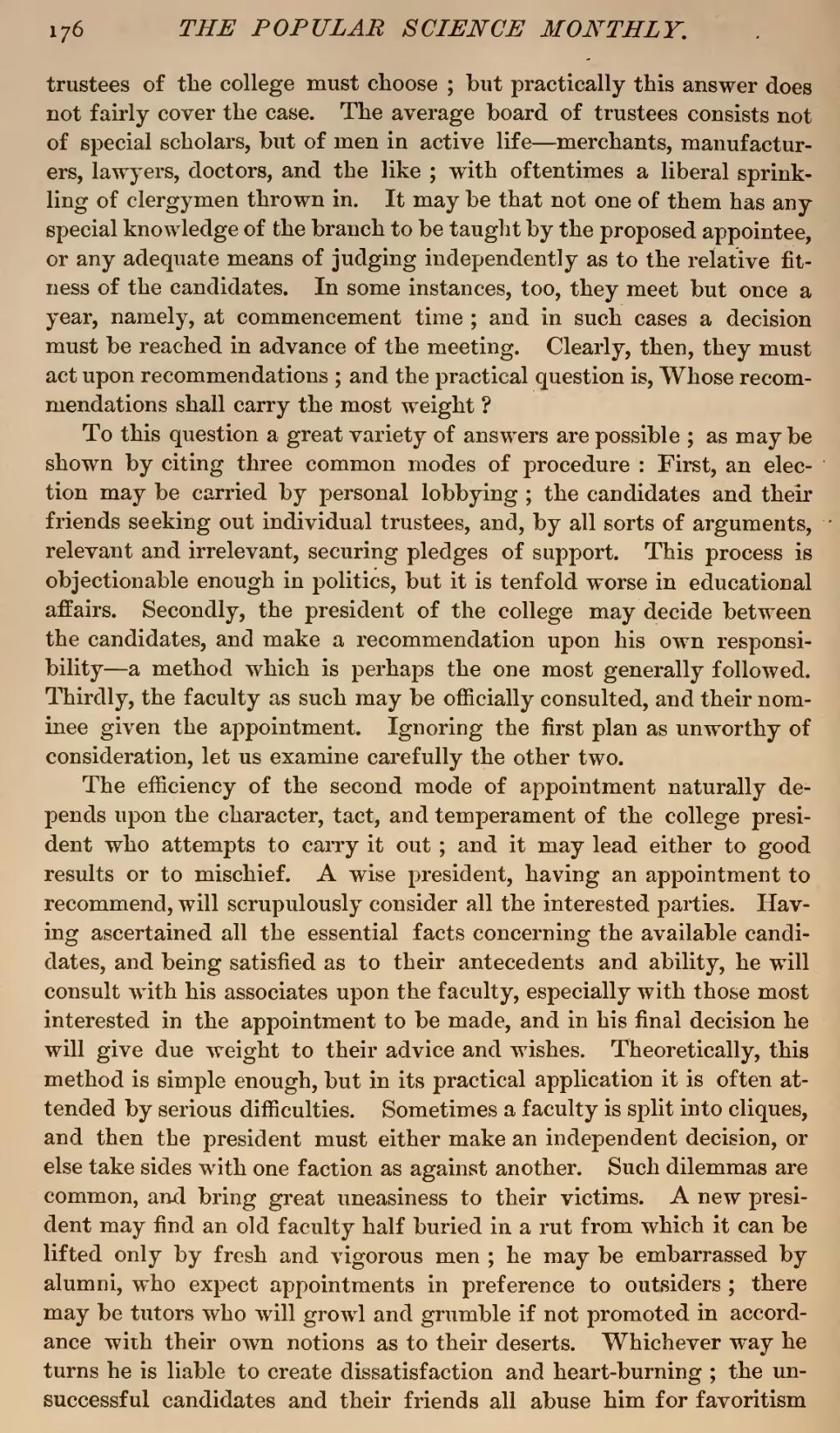trustees of the college must choose; but practically this answer does not fairly cover the case. The average board of trustees consists not of special scholars, but of men in active life—merchants, manufacturers, lawyers, doctors, and the like; with oftentimes a liberal sprinkling of clergymen thrown in. It may be that not one of them has any special knowledge of the branch to be taught by the proposed appointee, or any adequate means of judging independently as to the relative fitness of the candidates. In some instances, too, they meet but once a year, namely, at commencement time; and in such cases a decision must be reached in advance of the meeting. Clearly, then, they must act upon recommendations; and the practical question is, Whose recommendations shall carry the most weight?
To this question a great variety of answers are possible; as maybe shown by citing three common modes of procedure: First, an election may be carried by personal lobbying; the candidates and their friends seeking out individual trustees, and, by all sorts of arguments, relevant and irrelevant, securing pledges of support. This process is objectionable enough in politics, but it is tenfold worse in educational affairs. Secondly, the president of the college may decide between the candidates, and make a recommendation upon his own responsibility—a method which is perhaps the one most generally followed. Thirdly, the faculty as such may be officially consulted, and their nominee given the appointment. Ignoring the first plan as unworthy of consideration, let us examine carefully the other two.
The efficiency of the second mode of appointment naturally depends upon the character, tact, and temperament of the college presi-dent who attempts to carry it out; and it may lead either to good results or to mischief. A wise president, having an appointment to recommend, will scrupulously consider all the interested parties. Having ascertained all the essential facts concerning the available candidates, and being satisfied as to their antecedents and ability, he will consult with his associates upon the faculty, especially with those most interested in the appointment to be made, and in his final decision he will give due weight to their advice and wishes. Theoretically, this method is simple enough, but in its practical application it is often at-tended by serious difficulties. Sometimes a faculty is split into cliques, and then the president must either make an independent decision, or else take sides with one faction as against another. Such dilemmas are common, and bring great uneasiness to their victims. A new president may find an old faculty half buried in a rut from which it can be lifted only by fresh and vigorous men; he may be embarrassed by alumni, who expect appointments in preference to outsiders; there may be tutors who will growl and grumble if not promoted in accordance with their own notions as to their deserts. Whichever way he turns he is liable to create dissatisfaction and heart-burning; the unsuccessful candidates and their friends all abuse him for favoritism

